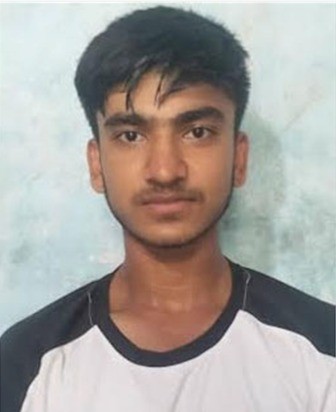“If you want, you can fall back. I will go ahead. I will become a martyr if needed. But I must go.”
These were the final words of 18-year-old Zahid Hossain to his friends on the fateful afternoon of July 19, 2024. Moments later, he was shot in the head and brutally beaten to death near Dhaka’s Mohakhali rail gate during the July mass uprising.
The harrowing details of that day were relayed by Rahela Begum, Zahid’s mother, who lives in a small, rented tin-roofed room in Nakhalpara.
Rahela remembers every moment of Zahid’s last day.
“It was Friday. I let him out for Jumma prayers, but only after locking him inside in the morning to stop him from going to the protest,” she said. “He wore his favorite white panjabi. After lunch, he lay on my lap and asked me to comb his hair. That was the last peaceful moment we had.”
Later that afternoon, as gunfire echoed through Nakhalpara, Rahela and Zahid stood outside, trying to understand what was happening.
“He was right beside me. The next moment, he was gone.”
Rahela was not present during Zahid’s final, courage-filled moments. She later heard the full story from his friends who were eyewitnesses to his death.
The protest on July 19 had spread across several parts of the city, with police firing continuously from elevated positions on the Mohakhali flyover. As Zahid reached the base of the flyover with fellow protesters, a bullet pierced his head.
What followed was even more horrifying. According to witnesses, as Zahid stood momentarily—bleeding, yet trying to stay upright—members of the Chhatra League, wearing helmets and wielding iron rods, descended on him and beat him senseless.
“The police stood right there. They didn’t stop it,” said Zahid’s brother, Rahat Hossain.
Rahela added, “When they realized he was still breathing, one of them kicked him to make sure he was dead. Only then did they leave him.”
Bystanders and fellow protesters carried Zahid’s bloodied body to Universal Medical College Hospital. Despite desperate efforts, the doctors could not save him.
“The bleeding wouldn’t stop,” Rahela said, holding back tears.
Zahid’s death devastated his family and community. He was the second of three children. His father, Jahangir Alam, 45, sells flowers in local markets. Zahid had dropped out after Class Seven to support the family, working alongside his father.
“We are poor people,” Jahangir said. “He used to wake up early and help me sell flowers. His income kept our home running.”
Unbeknownst to his family, Zahid had already been injured the previous day during another protest.
“He came home with rubber pellets in his body but didn’t tell anyone,” Rahela said. “He didn’t want to worry us.”
“They called my son a terrorist,” she continued. “But he was just a boy who helped his father sell flowers. What kind of terrorist was he? He didn’t even finish school. He just went to the protest.”
The ordeal did not end with Zahid’s death. After the incident, a group of police personnel allegedly attempted to seize his body from the hospital to cover up the killing. But his friends and local residents intervened.
“They wheeled his body out on a trolley and hid it in a nearby alley,” said Rahat.
That night, local mosques, fearing backlash, refused to allow funeral services. Zahid’s body was finally washed and shrouded at Haji Moran Ali Madrasa and buried at the Rahim Metal graveyard.
Soon after, the grieving family became targets of police action.
“Shortly after the burial, police came looking for my elder son,” said Jahangir. “They raided our house and the surrounding area. Everyone was terrified. People left the neighborhood. It became a ghost town.”
Local teenagers—some as young as 14—were detained and allegedly tortured.
“They were forced to confess they were acting on political orders from the opposition,” Rahela said. “They even labeled the children as BNP activists.”
To escape the crackdown, Zahid’s family fled to their hometown in Nabinagar, Brahmanbaria. But even there, peace remained elusive.
“The police came after us in the village, asking about Rahat,” Jahangir said.
Jahangir broke down while recalling how Zahid’s mother now lives only with memories.
“She holds on to his white panjabi, smells it, kisses his photos, and cries all day.”
Rahat, his voice choked with grief, remembered Zahid’s attempt to shield him.
“He told me, ‘You stay back. Take care of Amma and Abbu.’ He didn’t want me to get involved.”
The family could not take legal action immediately, as they were on the run. But after the fall of the Awami League regime, they filed a case on September 30, 2024, at Tejgaon Police Station.
The case names ousted Prime Minister Sheikh Hasina, as well as leaders and members of the Awami League, Chhatra League, Jubo League, and around 100 to 150 police officers, for their alleged involvement in Zahid’s death.
“We don’t want revenge,” Jahangir said. “We just want justice for our son. He sacrificed his life for his country. He is a martyr.”


